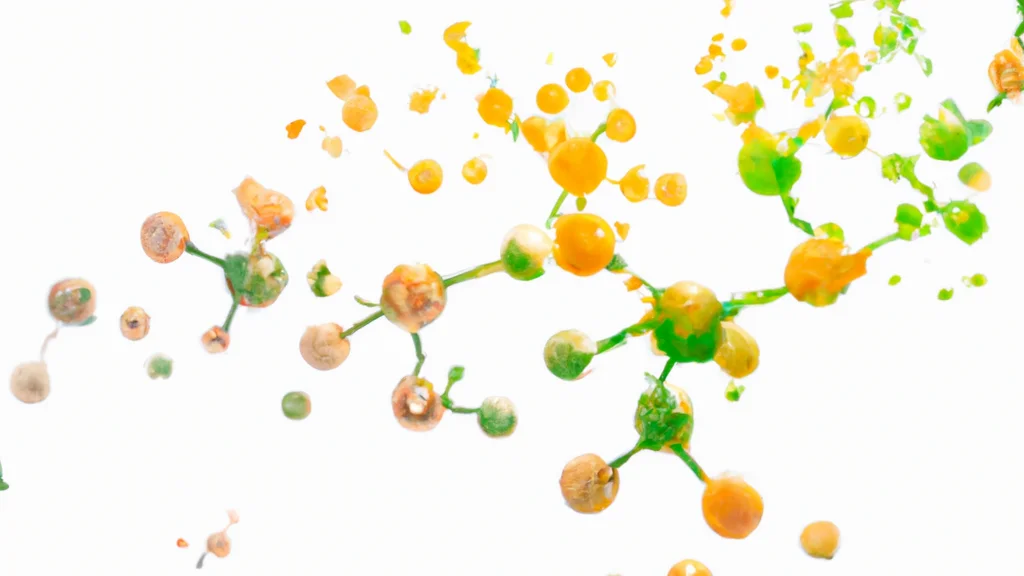Vitamin B12 is an essential nutrient that helps your body make red blood cells, DNA, and nerve function. It also plays a role in preventing anemia, a condition that causes fatigue and weakness. The recommended daily intake of vitamin B12 for adults is 2.4 micrograms (mcg).
However, getting enough vitamin B12 can be challenging for vegetarians and vegans, who avoid animal products that are the main sources of this vitamin. In fact, Studies have shown that the prevalence of vitamin B12 deficiency is higher in vegans and vegetarians than in the general population. For example, a study conducted on 232 vegans in Germany found that 92% of the participants had low vitamin B12 levels in their blood, and 62% were deficient. Similarly, a study conducted on 210 vegetarians in the United States found that 50% had low vitamin B12 levels, and 7% were deficient.
Fortunately, there are ways to meet your vitamin B12 needs on a plant-based diet. Here are some of the best sources of vitamin B12 for vegetarians and vegans:
- Fortified foods. These are foods that have added vitamin B12 during processing, such as cereals, plant milks, meat alternatives, and nutritional yeast. Fortified foods are a convenient and reliable way to get vitamin B12 on a vegetarian or vegan diet. However, the amount and bioavailability of vitamin B12 in fortified foods may vary depending on the brand and the processing method. Therefore, it is important to read the labels carefully and choose products that have at least 25% of the daily value (DV) of vitamin B12 per serving³.
- Nutritional yeast. This is a deactivated form of yeast that has a cheesy and nutty flavor. It is often used as a seasoning or a cheese substitute by vegetarians and vegans. Nutritional yeast can also provide vitamin B12 if it is fortified with it. One tablespoon of fortified nutritional yeast can provide about 2.4 mcg of vitamin B12, which meets the daily requirement for adults¹. You can sprinkle nutritional yeast on popcorn, salads, soups, pasta dishes, or use it to make vegan cheese sauces or dressings.
- Certain mushrooms. Some edible mushrooms can contain small amounts of vitamin B12 if they are grown in soil or compost that has bacteria that produce this vitamin. However, the amount and bioavailability of vitamin B12 in mushrooms may vary depending on the type, origin, and preparation method of the mushrooms⁴. Some examples of mushrooms that may contain vitamin B12 are shiitake, oyster, black trumpet, and lion's mane mushrooms. You can add these mushrooms to your stir-fries, soups, stews, or salads.
- Certain algae. Some types of algae or seaweed can also contain vitamin B12 if they are exposed to bacteria that produce this vitamin in their natural environment or during fermentation⁴. However, the amount and bioavailability of vitamin B12 in algae may vary depending on the type, origin, and processing method of the algae⁴. Some examples of algae that may contain vitamin B12 are nori (the seaweed used to make sushi), chlorella (a green algae powder), and spirulina (a blue-green algae powder). You can use nori to make sushi rolls or snacks, or add chlorella or spirulina to your smoothies or juices.
If you are not sure whether you are getting enough vitamin B12 from these sources, you may want to consider taking a supplement. There are two forms of vitamin B12 supplements: cyanocobalamin and methylcobalamin. Cyanocobalamin is more stable and cheaper than methylcobalamin but requires more steps for your body to convert it into an active form⁴. Methylcobalamin is more bioavailable and easier for your body to use but may degrade faster than cyanocobalamin⁴. Both forms are effective at preventing or treating vitamin B12 deficiency⁴.
(1) Vitamin B-12 foods for vegetarians and vegans - Medical News Today. https://www.medicalnewstoday.com/articles/320524 Accessed 3/22/2023.
(2) Vitamin B12: Foods for Vegetarians - Healthline. https://www.healthline.com/health/vitamin-b12-foods-for-vegetarians Accessed 3/22/2023.
(3) Vitamin B12: Foods for Vegetarians - Healthline. https://www.healthline.com/health/vitamin-b12-foods-for-vegetarians Accessed 3/22/2023.
(4) Best Vitamin B12 Foods for Vegetarians and Vegans - Greatist. https://greatist.com/health/vitamin-b12-foods-for-vegetarians Accessed 3/22/2023.
Non web sources:
- Pawlak R, Parrott SJ, Raj S, Cullum-Dugan D, Lucus D. How prevalent is vitamin B(12) deficiency among vegetarians? Nutr Rev. 2013 Feb;71(2):110-7. doi: 10.1111/nure.12001. PMID: 23356638.
- Herrmann W, Schorr H, Obeid R, Geisel J. Vitamin B-12 status, particularly holotranscobalamin II and methylmalonic acid concentrations, and hyperhomocysteinemia in vegetarians. Am J Clin Nutr. 2003 Jul;78(1):131-6. doi: 10.1093/ajcn/78.1.131. PMID: 12816782.
- Koebnick C, Hoffmann I, Dagnelie PC, Heins UA, Wickramasinghe SN, Ratnayaka ID, Gruendel S, Lindemans J, Leitzmann C. Long-term ovo-lacto vegetarian diet impairs vitamin B-12 status in pregnant women. J Nutr. 2004 Dec;134(12):3319-26. doi: 10.1093/jn/134.12.3319. PMID: 15570093.
- Gilsing AM, Crowe FL, Lloyd-Wright Z, Sanders TA, Appleby PN, Allen NE, Key TJ. Serum concentrations of vitamin B12 and folate in British male omnivores, vegetarians and vegans: results from a cross-sectional analysis of the EPIC-Oxford cohort study. Eur J Clin Nutr. 2010 Sep;64(9):933-9. doi: 10.1038/ejcn.2010.142. Epub 2010 Jul 7. PMID: 20616887.
